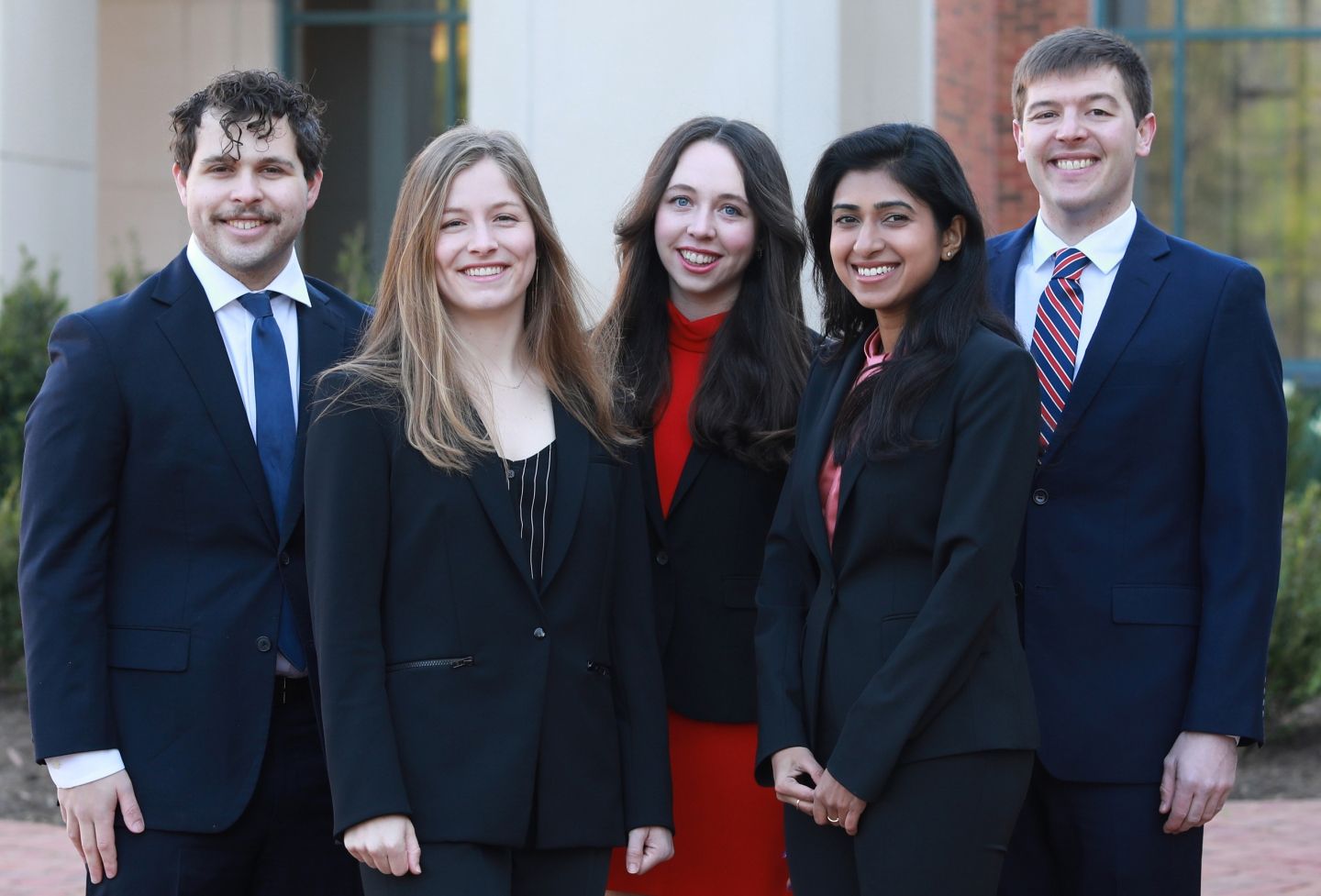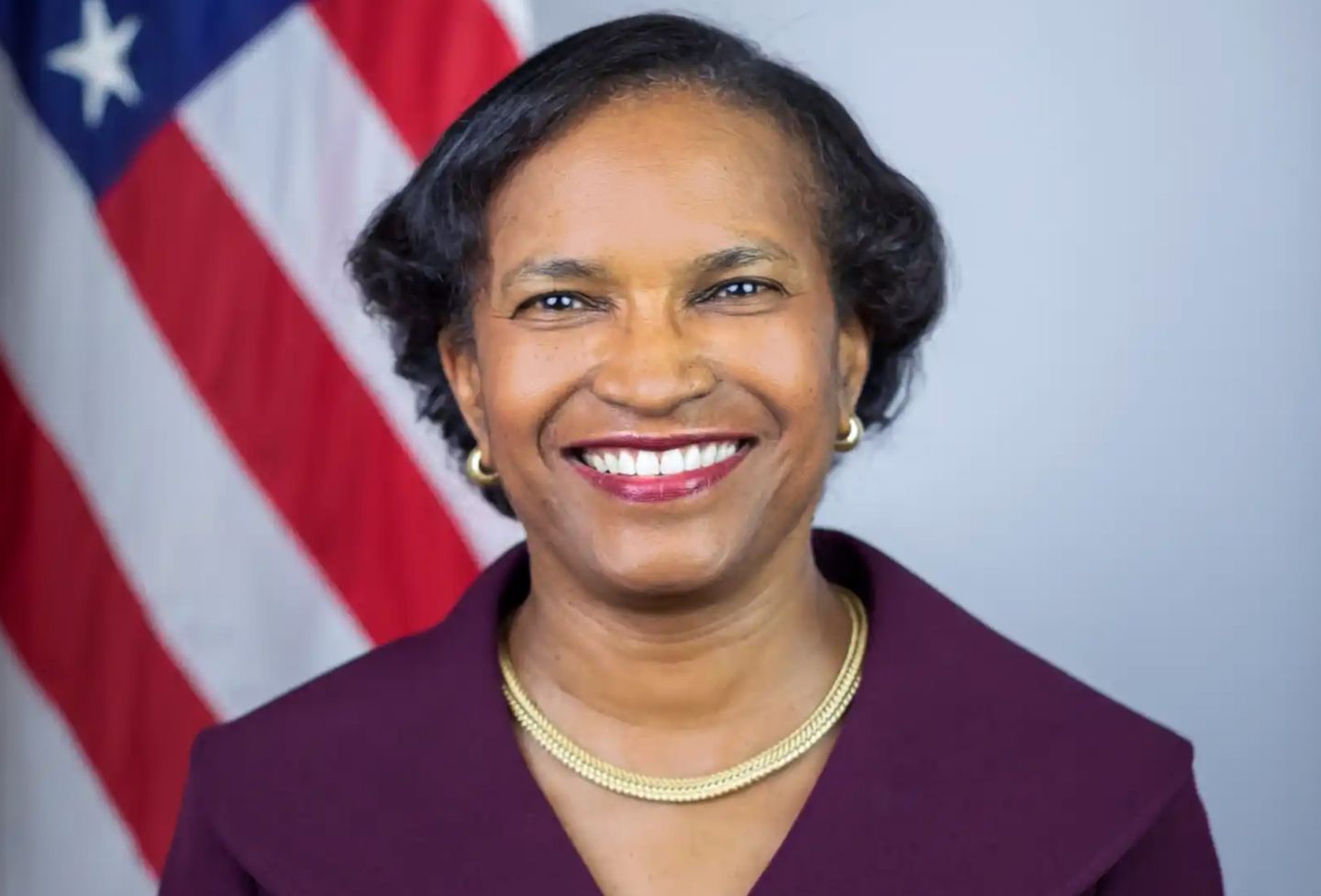Foreign policy and international law experts will look back at major foreign policy initiatives of the Obama administration at the 66th Annual International Law Symposium on March 23 at the University of Virginia School of Law. (Register)
Participants from academia, private practice and nongovernmental organizations will also explore how these Obama-era initiatives may be altered or reshaped under President Trump. The symposium, “The Obama Doctrine: International Law and Foreign Policy Under the 44th President,” will be held in Caplin Pavilion and is sponsored by the student-run J.B. Moore Society of International Law and the Virginia Journal of International Law.
Lauren Sandground ’18, symposium director for the J.B. Moore Society, said the event was inspired in part by the change in presidential administrations and by an Atlantic article by Jeff Goldberg, “The Obama Doctrine,” about Obama’s philosophy in disengaging the U.S. military abroad.
“The symposium is both backward and forward-looking,” Sandground said. “Presidential actions have staying power, and it will be fascinating to see how President Trump takes the reins on these various international topics.”
Gannam Rifkah ’17, managing editor of the Virginia Journal of International Law, said the transition to a Republican administration “adds intrigue to the symposium, as the future of many Obama administration initiatives, such as his trade interactions in Asia or the Iran deal, are truly in a state of flux.”
Keynote speaker Peter S. Vincent '95, assistant director general of international policy at Borderpol and former principal legal advisor at U.S. Immigration and Customs Enforcement under President Obama, will speak at 5 p.m. in Caplin Pavilion. A reception will follow the keynote speech.
Vincent has appeared as a foreign policy analyst on networks such as CBS, CNN and NBC, and he has written editorials for publications including the New York Times, San Francisco Chronicle and Houston Chronicle.
Vincent said the mass migration of refugees and asylum-seekers and an “unprecedented” wave of terrorism in the West have combined to brew fear and xenophobia.
“The United States and other Western nations can provide safe haven to these victims while at the same time guarding against any nefarious actors that might seek to exploit these legitimate streams of irregular migrants to perpetrate acts of terror,” Vincent said. “Indeed, is our collective legal and moral obligation to do so.”
The symposium also will include panels on territorial disputes in the South China Sea, the Iran nuclear deal and the impact of the 2016 Justice Against Sponsors of Terrorism Act, which authorizes U.S. federal courts to exercise personal jurisdiction over any foreign state's support for acts of terrorism against U.S. nationals. Professor Saikrishna Prakash, an expert on presidential powers, will kick off the event at 12:15 p.m.
During the symposium, parking will be available in the D-2 and D-22 lots. To attend, register here.
The Obama Doctrine: International Law and Foreign Policy Under the 44th President
Thursday, March 23, Caplin Pavilion
12:15 p.m.
Lunch and Introductory Remarks
Saikrishna Prakash, University of Virginia School of Law
12:30 p.m.
Pivot to Asia: Ongoing Disputes in the South China Sea, Nuclear Weapon Build-up in North Korea, and the Unsure Future of U.S.-Asia Trade Relations
- Jacques deLisle, University of Pennsylvania Law School
- Lt. Comm. Rachel Mangas, Judge Advocate General Corps Legal Center and School
- John T. Oliver, Georgetown University Law Center
- Toluse Olorunnipa, Bloomberg News
- Moderator: John Norton Moore, University of Virginia School of Law
2 p.m.
Impact of the Justice Against Sponsors of Terrorism Act (2016) on the Doctrine of Sovereign Immunity
- David P. Stewart, Georgetown University Law Center
- Richard D. Klingler, Sidley Austin
- Moderator: Paul B. Stephan, University of Virginia School of Law
3:30 p.m.
Corporate Challenges After the Joint Comprehensive Plan of Action With Iran
Jan. 16 marked the one-year anniversary of the Implementation of the Joint Comprehensive Plan of Action, or JCPOA. Even though the U.S. and the EU have lifted nuclear-related sanctions on Iran, banks and private interests are still hesitant to enter the Iranian market. The panel will explore these corporate challenges following the inception of the JCPOA.
- Eric J. Kadel Jr. '97, Sullivan & Cromwell
- Lindsay B. Meyer, Venable
- Zachary K. Goldman, New York University School of Law
- Moderator: Kevin Cope, University of Virginia School of Law
5 p.m.
Weathering the Perfect Storm: Can the United States Accommodate the Mass Migration of Refugees While Guarding Against Nefarious Actors and Combating Terrorism at Home and Abroad?
Peter S. Vincent, Assistant Director General of International Policy, Borderpol
Introduction by David Martin, University of Virginia School of Law
The keynote address is co-sponsored with the Immigration Law Program.
6:15 p.m.
Reception
Founded in 1819, the University of Virginia School of Law is the second-oldest continuously operating law school in the nation. Consistently ranked among the top law schools, Virginia is a world-renowned training ground for distinguished lawyers and public servants, instilling in them a commitment to leadership, integrity and community service.


